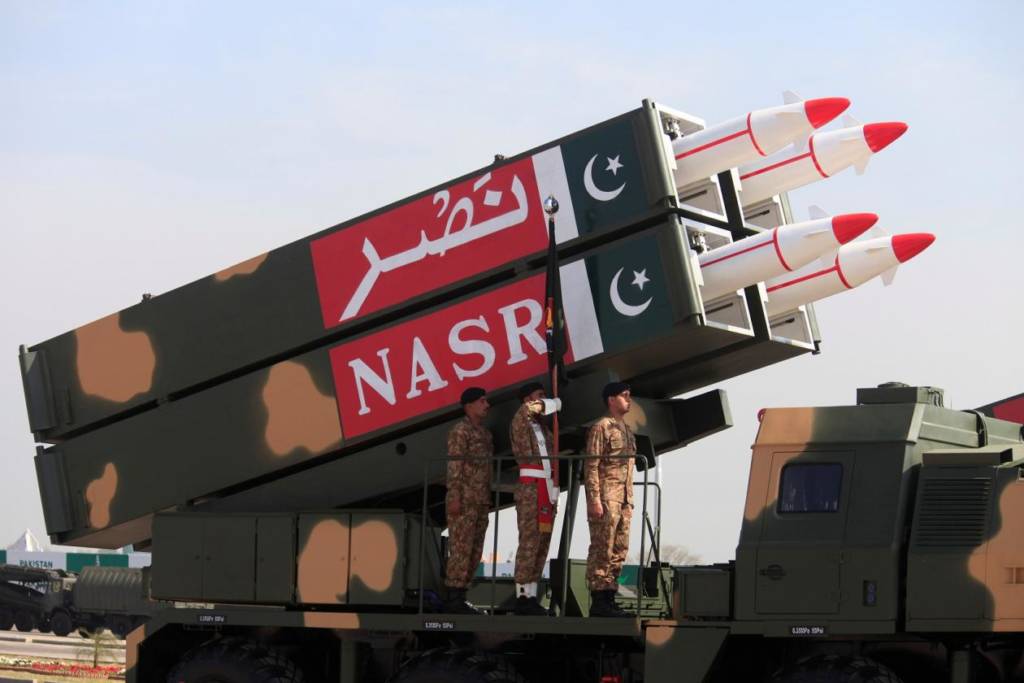As per a recent report on Hindustan Times, it has come to light that the German government believes that there has been a “sharp increase” in Pakistan’s efforts to illegally procure nuclear, biological and chemical (NBC) weapons technology. This reignites the concern expressed by Bundesamt für Verfassungsschutz (BfV), Germany’s domestic intelligence agency, last year in its report on proliferation-related matters to the effect that there has been a “massive increase” in Pakistan’s attempts to procure nuclear goods in Germany and other Western countries covertly.
The German intelligence agency’s report on Proliferation had stated, “There has been a massive increase in Pakistani procurement attempts both in Germany and in numerous other Western countries. The main focus is on goods that can be used in the field of nuclear technology. Accordingly, intensive efforts are to be expected in the future as well.”
Expressing concern over the issue, the intelligence agency further noted that Pakistan hadn’t signed the Nuclear Non-Proliferation Treaty (NPT) and associated security agreements. The report further pointed out that Pakistan does not only have a civilian nuclear programme, but also an “extensive military nuclear and carrier technology programme directed against the ‘arch-enemy’ India”.
The intelligence report also made it clear that currently Pakistan has 130 to 140 nuclear weapons and it is looking to increase the number of nuclear warheads to 250 by 2025.
There are growing concerns within Germany about Pakistan’s aggressive bid to acquire nuclear technology for nuclear proliferation. Dagdelen, a member of the foreign affairs committee of the German Parliament, told TV programme, Tagesschau, that while Iran was moving in the right direction when it comes to proliferation activities, Pakistan which is one of the major recipients of German armaments among the developing countries, was “not a reliable partner”. She added, “Therefore, the federal government must end arms supplies to Pakistan, especially with regard to the Kashmir conflict.”
What makes the German intelligence agency’s report that much more relevant and worrisome is the fact that of late Pakistan’s top political leadership, including its Prime Minister Imran Khan have been openly extending nuclear threats against India. Imran Khan went on to raise the nuclear bogey even at the UNGA session earlier this year. He said, “If the conventional war starts with a country which is four times the size of Pakistan, what will we do? This is what I ask myself a lot of times. But I say this, we will fight but think what happens when two nuclear countries fight.”
What the German intelligence agency has pointed out and what is being now pointed within Germany is a longstanding issue. Pakistan has been an irresponsible, unreliable country from the very start. Pakistani scientist Abdul Qadeer Khan, who is hailed as a hero within Pakistan for establishing its nuclear programme, is a living example of how Pakistan has been completely unreliable when it comes to nuclear proliferation. In 2004, the ‘Father’ of Pakistan’s atomic bomb confessed before live television that he had illegally sold nuclear technology to states like North Korea, Iran and Libya.
Khan had set up his black market in nuclear proliferation way back in the 1970s. Till 2004, when he confessed about illegally selling nuclear technology to some of the most sensitive and conflict-torn parents of the world, the US and other countries had several opportunities to stop him. Pakistan, North Korea and Iran have today become major security challenges for the US and the entire world. Pakistan alone has been responsible for creating volatile nuclear hotspots that pose a huge security challenge.
It is clear that Pakistan’s nuclear programme is not based on deterrence, rather it is a nefarious design to threaten India. It does not use nuclear technology for creating a deterrent effect. Its nuclear goals are to bully and blackmail the subcontinent and even the world at large against any action on its terror camps. In order to achieve this end, Pakistan is looking to almost double its nuclear capabilities by 2025. What makes Pakistan’s efforts to step up its illegal proliferation of nuclear weapons an even bigger issue is the presence of terror training camps within Pakistan.
The Pakistani military trains and uses jihadi irregulars as an asset to further their geopolitical goals. In fact, the terror organisations operating on the Pakistani soil form an almost integral part of its political and military establishment. Insecure about its nuclear arsenal, Pakistan is also reported to be carrying around its nukes in ‘civilian-style delivery vans’ across the country. In such circumstances, the possibility of its nuclear warheads going into wrong hands cannot be ruled out.
In 2016, a report by experts at King’s College of London pointed out that Pakistan should be kept out of the Nuclear Suppliers Group (NSG) because of its use of deceptive methods to obtain dual-use goods for its nuclear programme.
The manner in which Pakistan has been trying to portray itself as an ardent protector of the Muslim community across the world, also gives rise to the suspicion that Pakistan might once again look to illegally sell nuclear technology and weapons to some of the major conflict zones. In such circumstances, the world at large must remain careful of what Pakistan is up to. The policymakers failed to nip Pakistan and Abdul Qadeer Khan in the bud when they went rogue and sold nuclear technology to countries like North Korea. But now all responsible powers of the world must come together to ensure that Pakistan, being the irresponsible nuclear power that it is, does not create more volatile nuclear hotspots endangering international peace.
